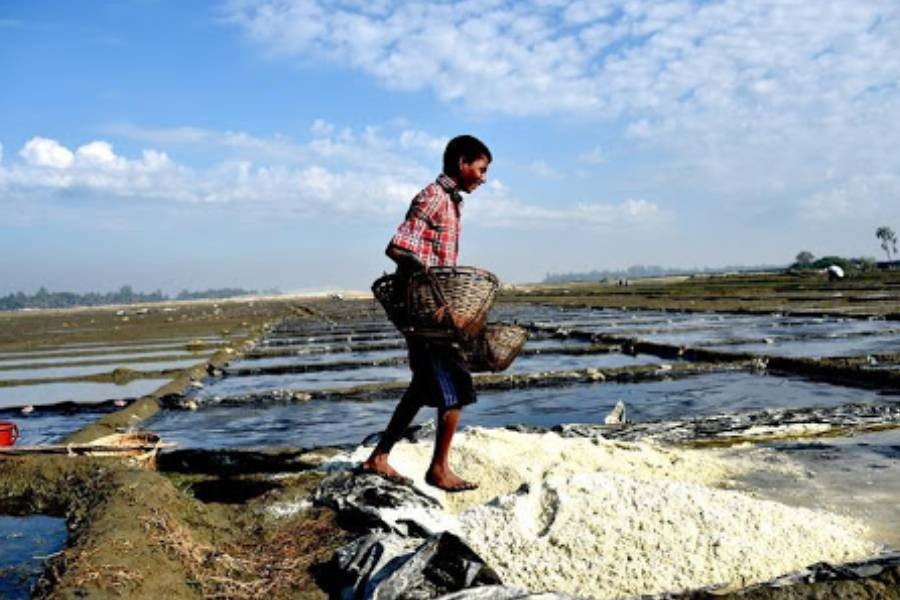Industries ministry has suggested that the National Board of Revenue (NBR) take its recommendations before allowing the import of any type of salt.
It sought detailed information regarding the salt import, including importers' names and the volume of import, before giving permission from the customs bond commissionerate.
The proposal came following widespread allegations from local salt producers on the import of sodium chloride or edible salt in the name of industrial salt.
Currently, the import of edible salt is banned in Bangladesh as per the National Salt Policy-2016 and the Import Policy Order.
The government only allows the import of industrial salt as raw material for use in industries.
Industries secretary KM Ali Azam in a recent letter to NBR chairman Abu Hena Md Rahmatul Muneem sought cooperation in stopping this malpractice for the survival of domestic salt producers.
The move has been made on allegations of the abuse of bonded warehouse facility in importing industrial salt.
Salt farmers of Cox's Bazar and Chattogram, and mill owners involved in edible salt refinement and iodisation recently raised concerns over the issue.
It is alleged that some industries and commercial importers give misdeclaration to the Bangladesh Investment Development Authority, the handloom board, and the bond commissionaerate under the NBR.
They are importing edible salt under the guise of industrial salt.
"Those importers import partially or fully consumer salt and use a small part in industries but sell in the local market by changing packets," Mr Azam said.
Local salt farmers are incurring losses for this malpractice and the government high-ups also raised concerns over the issue, he added.
He said the Bangladesh Small and Cottage Industries Corporation (BSCIC) will be able to monitor the issue if the bond commissionaerate obtains recommendation and opinion (including HS code) of the ministry before allowing the import of any type of salt.
Earlier, the Bangladesh Salt Mill Owners Association (BSMOA) during a press conference accused the BSCIC of giving scope for dishonest traders to import consumer salt in the name of industrial salt.
The association demanded the release of actual data on demand and production of salt in the local market.
BSMOA leaders alleged that the BSCIC is providing manipulated information on salt production by domestic industries.
They also protested the BSCIC's claim that some 60,000 hectares of land are used for salt farming.
On Saturday, BSMOA president Nurul Kabir said the government has already acquired 15,000 hectares for power generation and other development purposes, thus shrinking areas for salt cultivation.
There is a loophole in the import policy's chapters 28 and 29, and some people are taking full advantage of this to import edible salt, he told the FE.
Although the policy banned the import of edible salt, Mr Kabir said, ambiguity remains in the policy.
The annual local demand for edible salt is an estimated 1.0-million tonnes while its import is 7.0-8.0 million tonnes in the name of industrial salt, he cited.
In the December-February period, some 0.5-million tonnes of salt have been imported here, Mr Kabir said. "We are not against the import of industrial salt. The government can allow the import of those salts in different colours to check abuse," he suggested.
Industry insiders said some 300 salt owners are under threat for such illegal imports of toxic salt.


